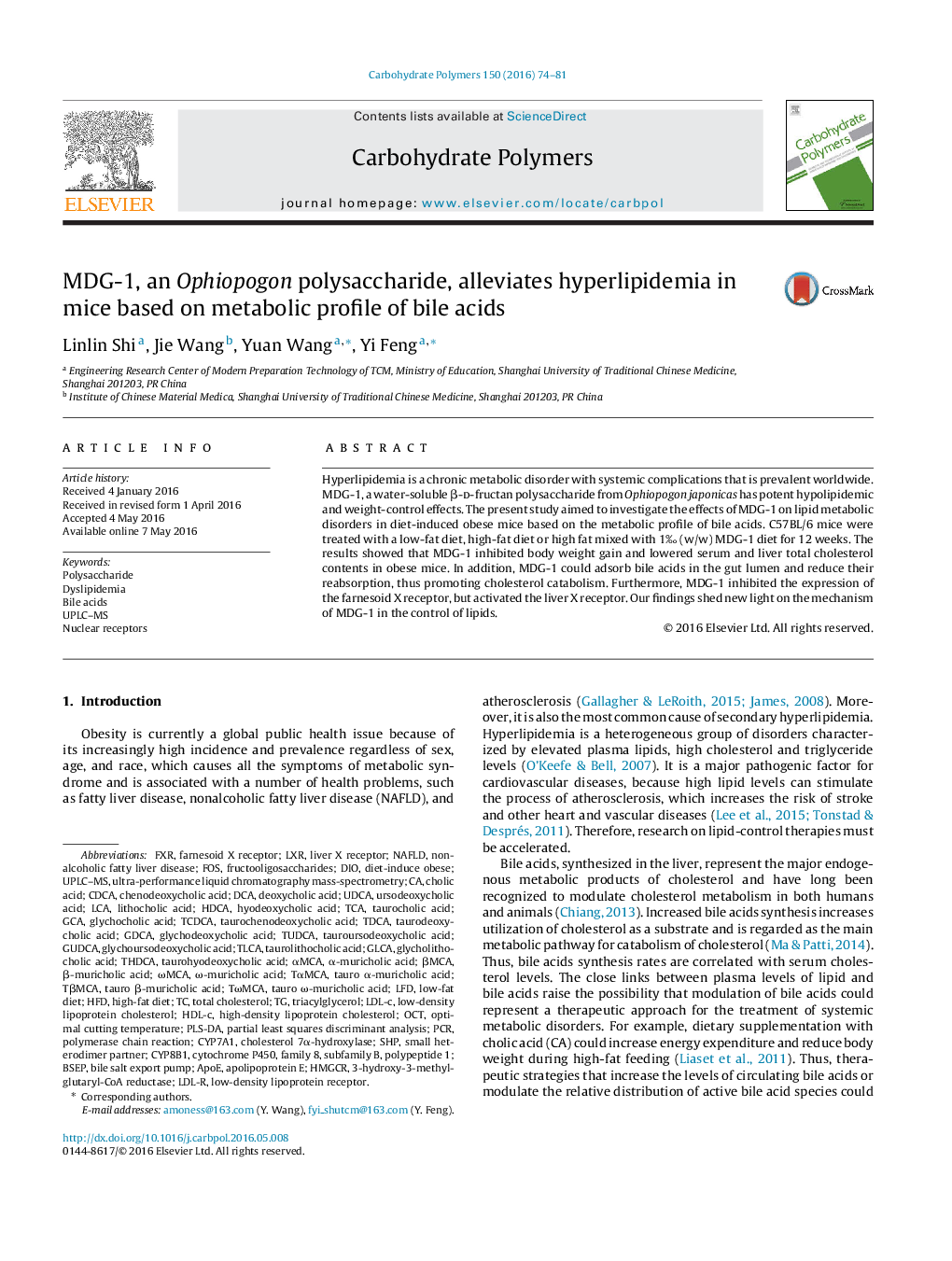| Article ID | Journal | Published Year | Pages | File Type |
|---|---|---|---|---|
| 1384815 | Carbohydrate Polymers | 2016 | 8 Pages |
•MDG-1 lowers TC contents in obese mice via affecting bile acids metabolic profile.•The lipid-control effect of MDG-1 is mediated by promoting cholesterol catabolism.•MDG-1 affects gene expression related to the negative feedback control of bile acids.
Hyperlipidemia is a chronic metabolic disorder with systemic complications that is prevalent worldwide. MDG-1, a water-soluble β-d-fructan polysaccharide from Ophiopogon japonicas has potent hypolipidemic and weight-control effects. The present study aimed to investigate the effects of MDG-1 on lipid metabolic disorders in diet-induced obese mice based on the metabolic profile of bile acids. C57BL/6 mice were treated with a low-fat diet, high-fat diet or high fat mixed with 1‰ (w/w) MDG-1 diet for 12 weeks. The results showed that MDG-1 inhibited body weight gain and lowered serum and liver total cholesterol contents in obese mice. In addition, MDG-1 could adsorb bile acids in the gut lumen and reduce their reabsorption, thus promoting cholesterol catabolism. Furthermore, MDG-1 inhibited the expression of the farnesoid X receptor, but activated the liver X receptor. Our findings shed new light on the mechanism of MDG-1 in the control of lipids.
